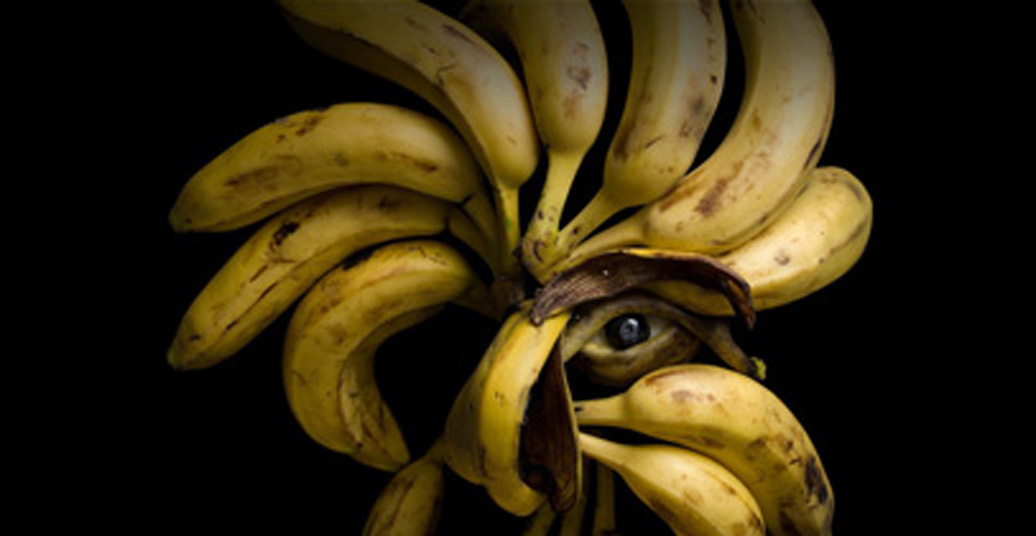Inky Lee writes about “Exotic Animal”, a performance created and performed by Ming Poon, and co-produced by English Theatre Berlin. The performance took place online, via Zoom, on 3 – 5 December 2020.
The first comment in the post-discussion talk after the performance is made by a white person zooming in from Sweden. “This has been one of the most intense cultural experience I’ve ever had in my life,” she says. “I’ve been crying, and trying not to cry, because it was very disturbing and painful at the same time.” Later on in the call, an Asian person1 says that none of the parts in the performance were funny for her, but were rather very hurtful, triggering, and traumatising. “It opened up so many wounds, and it came to the point that it was so difficult to continue watching that I even thought of just quitting,” she adds. My experience of the performance as an Asian person is that it was funny at times, but also relentlessly revealing, and, thus, painful.
“Exotic Animal” optimises the conditions of online performance — the lighting is pleasant, and the camerawork is well orchestrated. It gives me the feeling of watching a movie. The most significant element, however, is how the online viewing experience provides the audience the distance and anonymity required to embolden and empower them to vocally direct Ming Poon during the audience participation section, which lasts for 15 agonising minutes. The performance simulates a dance audition that specifically recruits dancers with non-European backgrounds. Ming Poon depicts himself as an ambitious participant in the audition who wants to be chosen no matter what. “For my visa, for the pay, and because there are not many instances in which people want to hire non-European dancers!” he says.
The first part of the audition is a fast-paced ballet class, where the jury members “will kick out as many people as possible,” as Ming Poon puts it. We watch him throughout this unsettling situation as he strives to follow the class. He continuously performs cheerfulness and humour, running at times up close to the camera and telling us his thoughts, such as: “I started ballet because I was told that ballet is the highest of all dance forms, and, if I could master it, I could do all forms of dance!” “To be honest, I like ballet because it makes me feel very European. The fact that everything is in French makes it even more high class!” “In Singapore, we look up to the West, and we try to copy as much as we can!” “I believe ballet is going to be my ticket to the dance market here!” At the end, he fails to pass the initial round. However, he begs the jury to let him show his solo piece, which, miraculously, they allow.
Ming Poon’s solo is cut abruptly short by the jury who demand he show them something more “cultural” and “Chinese”. I frown and think that the real shit is starting now. Desperate to get the job, Ming Poon struggles to come up with something “Chinese” and starts to murmur “Ni hao, ni hao,” while he timidly flaps his body around in the back corner of the stage. He then runs to the camera and asks the audience to please help him. He has been given 15 minutes to prove himself (we see the big oppressive numbers ticking down on the back wall of the stage) and make something “Chinese”. The Zoom host unmutes everyone’s microphones as Ming Poon instructs the viewers to direct him to do something “Chinese”. Someone enthusiastically shouts, “Bells and chimes! Jing Jaeng Jing, Jing Jang Juang! Like the music in Asian movies! Jing Jaeng Joong, Jing Jang Jing!”, to which I explode into laughter and have to immediately mute my microphone. I know that my immediate coping mechanism to shock and disbelief is often laughter.
Ming Poon eagerly incorporates the audience’s contributions to create a new solo. He mimics their sounds and tries to embody their instructions, while repeatedly asking them for more detailed descriptions. Further suggestions from the viewers are: Qigong, angry dragon, Jackie Chan, and Kung Fu fighter, Asian bunny candy, firecrackers, Chinese maiden dancing with a fan in front of an emperor, limbs stiff like chopsticks. At this point, Ming Poon asks the audience to put themselves in the position of the jury, who are often composed of choreographers, theatre directors, and funders. “What would they like to see?” he asks. The following suggestions are: Fire on the butt, venomous Asian snake turning into a human, a lotus flower floating on water.
Then, I venture a suggestion. Knowing Ming Poon personally, I seem to remember that he speaks at least some Chinese (though later in the discussion, he says that he doesn’t speak, read, or write Chinese so well). “Say something in Chinese,” I say. In response, he stutters and makes some high pitch melodies sprinkled with “Ni hao.” Other people step in, and it quickly transforms into a poor stereotype of a ‘Chinese opera’. Having learned Chinese to the level that I could pass as a Chinese speaker in Beijing, I comment, “Make sure it sounds like Chinese.” To this, Ming Poon asks me to demonstrate what “sounding like Chinese” is. What immediately springs to mind is the ‘Asian’ intonation that sounds like gibberish, and which I encounter endlessly on the streets. Once, I was taking a walk with a white friend, and a jogger slowed down as he passed us by, put on an animated face, babbled out some gibberish in my face, and ran on. In shock, the friend asked me what the fuck that was about. I simply said, “Welcome to my world,” and walked on. Finding it too painful to voice this kind of sound myself to another Asian person, I fall silent. A moment later, an agitated voice requests that Ming Poon stop trying to be funny, and instead to really believe in what he is demonstrating. “But sometimes humour is the only way to talk about things that are otherwise too personal and hurtful,” I think.
When the ominous clock finally ticks down to zero, signalling the end of this section of the piece, the lights fade to black. We hear short excerpts of our comments played back as part of a composed soundscape. As the sound quiets to calm ambient instrumental without vocals, warm shades of light dimly illuminate the space, and Ming Poon appears in a light beige unitard that covers even his face. He slowly carries out an ambiguous and simplified version of the solo created in the previous part. Being in a unitard while moving through these stereotypical shapes, he seems to be erased down to a faceless object, a clichéd image that represents just one of the many of us who involuntarily fall into certain boxes of imagination. I think back to the moment when an old white German called me “Kimchi” when she couldn’t remember my name. As much as the final scene is beautiful to witness in its slow and warm quality of sound, colour, and movement, it is also heart breaking.
During the post-discussion talk, Ming Poon explains that the piece is about the subtle and complex racism of objectifying and exoticising the male Asian body. “While female Asian bodies are sexualised, male Asian bodies are often desexualised, which is also a way of eroticising,” he adds. He speaks also about the challenge he encounters when everything he does becomes “exotic”. I flash back to a moment when a white man commented as I drank water, that even just drinking water is “mysterious” when I do it. The way Ming Poon chooses to deal with these situations, which he explains is also the theme of the performance, is by refusing to meet anyone’s expectations. He deliberately fails to represent anything. Throughout the performance, he fails to get the job, to show his solo, to make a new “successful” solo, and to meet the viewers’ anticipations.
The discussion ends with a comment from the same person who made the first comment in the discussion. “Thank you so much for this talk. I was so shaken up after the show, but now I feel better. Now I can sleep,” she says. I cannot help but feel a slight annoyance arise in me, as I wonder, “For how much longer do these discussions have to be about white people feeling better?” The truth is that we, “the more vulnerable people”, as another Asian person says during the discussion, face emotional upset due to stereotyping on a daily basis, and still question if we are “too sensitive”. Ming Poon drops a quick comment, “Maybe I’m too sensitive,” at the beginning of the talk, even after devoting four years to dismantling, understanding, and creating a work about this “subtle” act of othering. And soon after the performance, I notice myself asking the same question: “Am I… too sensitive?”
Sleep will surely not come easily tonight.

- I use the term ‘Asian Person’ throughout this text to refer to people who are often hastily assumed to be of East Asian origin. There are, however, various regions and countries in Asia. For example, Ming Poon is from Singapore, in Southeast Asia while I come from South Korea, in East Asia, although both of us often fall into the same pot of the ‘Asian’ categorisation. It is, in fact, about six-and-a-half hours by air between the two countries.




